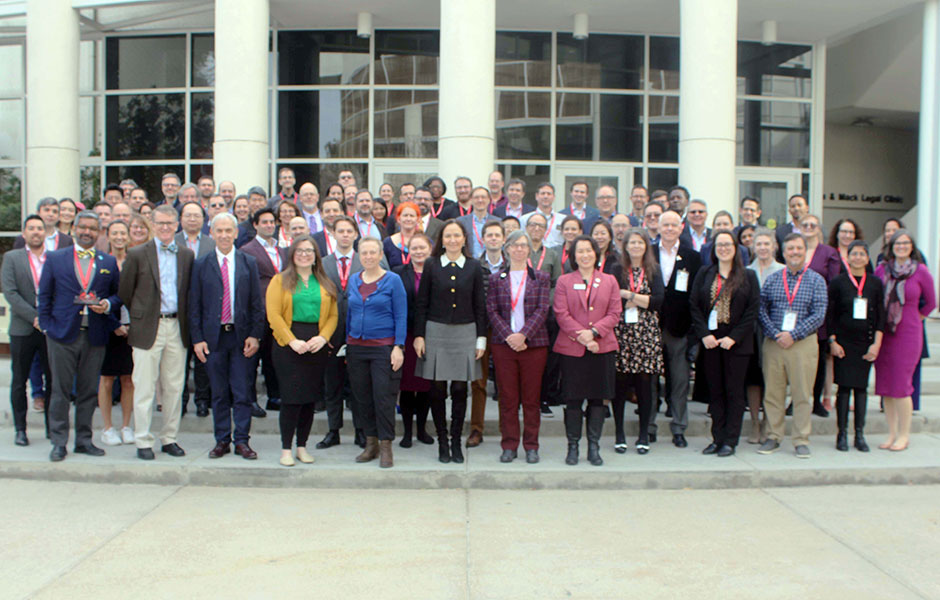Boyd Law Hosts Leading IP Scholars

Written By Pat McDonnell
Through a highly competitive bid process, Boyd Law was awarded the honor of hosting the 22nd Annual “Works in Progress for Intellectual Property Scholars” Colloquium (WIPIP 2025), which was held from January 30–February 1, 2025. WIPIP is one of the two leading national academic intellectual property law conferences for academics held annually.
The event drew more than 100 academics from law schools across the United States and seven other countries, who delivered over 70 presentations on a wide range of IP topics. The University of Richmond School of Law brought its annual “Evil Twin Debate” to Boyd Law, this year tackling “Patent Office Power in the New Agency Landscape.”
“The exchange among the academics is important,” said Marketa Trimble, the Samuel S. Lionel Professor of Intellectual Property Law and IP Law Concentration Co-Director, who co-organized the conference with IP Law Concentration Co-Director and the IGT Professor of Intellectual Property Law, Mary LaFrance, with the invaluable support from Dean and Richard J. Morgan Professor of Law Leah Chan Grinvald and the Associate Professor Youngwoo Ban of the Wiener-Rogers Law Library and the USPTO Patent & Trademark Resource Center.
Students in the Intellectual Property Law Society lend important assistance to the event, including Amy Zhao (‘25), who served as the President of IPLS during the 2024–25 academic year.
Zhao, who went on to join Brownstein Hyatt Farber Schreck’s Las Vegas office in September 2025, appreciated gaining a front-row seat to the latest scholarship. “We’re accustomed to reading polished and edited publications,” she said of Boyd Law students. “But we get a much different perspective when we hear about the research as it’s happening.”
Sessions covered many IP law topics, including patent litigation, challenges in establishing IP rights, and the ways in which legislative reform and potential Supreme Court action could reshape the field. But one theme stood out.
“The most critical issue right now,” Trimble said, “is the role that IP law must play in the deployment of artificial intelligence tools,” with copyright law at the center of the debate.